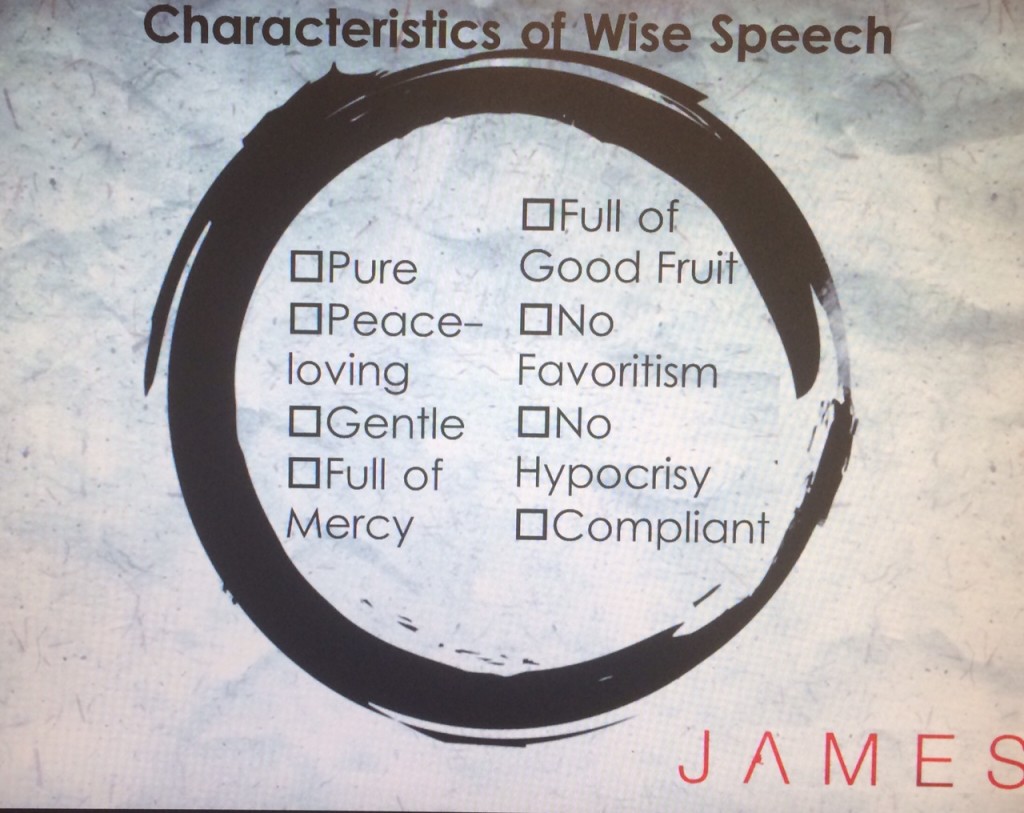
There are moments in everyone’s life where they are pushed to stand for what they believe in or are put to the test through adversity. Four moments in particular are:
1. The semester with the persuasive, atheist philosophy professor.
2. The day their best friend dies in a car accident.
3. The year when they don’t feel God’s presence at all.
4. The day when their fiancée breaks off the engagement, even after they have remained abstinent.
In this article the author tackles each of these moments and how we should be preparing our students to face them or if you are a students, how you should be preparing.
Four Moments I’m Preparing Students to Face
By Cameron Cole
Ministry to children and youth for both parents and church workers focuses on cultivating followers of Christ with sustainable faith. Basically, we want the faith of our young people to stick when they leave our homes and churches to live as independent adults.
As I listen to and observe the faith journeys of former students and young adults, I often see pivotal moments along the way that constitute “make or break” tests of their faith. Discipling my students, I am preparing them for these four moments.
1. The semester with the persuasive, atheist philosophy professor.
Whether in college or in a coffee shop, every young Christian will meet people who do not believe in the truth of Christianity and can argue persuasively against it. Particularly in college, students will encounter professors with an ax to grind against Christianity and with a desire to use their classroom as a platform against the religion. Many times, students without a deep theological base have their faith wrecked by slick arguments.
I want my students to ask hard questions and to have experience logically arguing for their belief in the veracity of Jesus Christ as Savior and Lord. So we dedicate much time in our youth ministry to working on apologetics. In particular, we focus on the validity of the Bible as God’s Word, the historical facts surrounding the resurrection, and the fulfillment of Old Testament prophecies in the life of Christ. I have found Tim Keller’s video series The Reason for God to be an indispensible tool for giving students both exposure to and practice in engaging arguments against Christianity.
2. The day their best friend dies in a car accident.
Deep suffering is the biggest challenge to the faith of young people. They have heard that God is good and that he loves them. They have been told that God has a wonderful plan for their life. Then they get a phone call that their best friend died in a car accident or that doctors have diagnosed their mom with terminal brain cancer. Their experience of suffering seemingly contradicts the claims of God’s goodness. They understandably ask, “If God loves me, why is he allowing this to happen?”
A vital aspect of youth ministry involves preparing young people to suffer. They have to know that they undoubtedly will suffer in this life. Furthermore, they need the tools to interpret tragedy through the scriptural lens that will enable them to walk away from trauma with steadfast confidence in God’s character. Broadly speaking, I spend much time teaching about the origins of suffering, God’s purposes in suffering, and God’s willingness to suffer in Jesus Christ.
3. The year when they don’t feel God’s presence at all.
The nature of faith is that some people enjoy euphoric experiences of God’s presence in their life, while others never feel anything all that unusual. Too often, Christian leaders who have been blessed with powerful spiritual encounters with God lead others to expect that all believers should or will have the same experience. In reality, many faithful Christian people never “feel” God or hear from him in these ways. They rest in God’s Word but have never enjoyed such overwhelming, supernatural encounters with their Creator.
Too often, I have seen students walk away from Christianity because they have never “felt” God. They believe that if the religion is true, then they will feel something to validate that it’s real. I have heard college students and young adults develop serious doubts because they have suffered a dry season where they do not experience God’s presence at all.
As a result, in our ministry we try to monitor the expectations students have of the Christian life. We acknowledge that some people have a more emotional faith with real spiritual experiences, while others have a more cerebral faith without mystical moments. We do not want kids to think that getting a “Christian high” validates whether or not God is real.
We do not want kids to think that getting a ‘Christian high’ validates whether or not God is real.
4. The day when their fiancée breaks off the engagement, even after they have remained abstinent.
I have been surprised, even amazed at the number of Christian young people who lose their faith after a serious disappointment. Things do not go the way they expected in everything from relationships and jobs to fraternities and graduate school admission. In turn, young people often respond with a sense of outrage that God did not grant them their wishes. In these cases a tone of entitlement frequently emerges, as if God owes them. They feel that they have lived the right way—paid their dues in other words—and, consequently, God should give them what they want.
If students grow up under a law-driven faith, where they either implicitly or explicitly learn that they win God’s favor through obedience, then they cannot help but believe that God should reward them for their faithfulness. When life does not meet expectations, they feel as if God has betrayed them. Their theology suggests, “I’ve fulfilled my end of the bargain, God. Now it’s your turn. I didn’t sleep with my girlfriend; therefore, my heart should not be broken.”
Consequently, it is critically important to constantly reinforce the fullness of the gospel. The full gospel says that we are sinners who have earned nothing but God’s wrath. God does not owe us anything. Jesus has fulfilled both our end and his end of the deal in his life, death, and resurrection. Everything we have in life comes through God’s grace.
The gospel reminds students that God is not obligated to grant them their wishes, but he is always for them, even in their season of disappointment.
Link to the Original Article
 We are starting a new series this Wednesday called, “My Favorite Verse.” While we may not all have a favorite verse, we all have many favorite things. Here’s what I need from you:
We are starting a new series this Wednesday called, “My Favorite Verse.” While we may not all have a favorite verse, we all have many favorite things. Here’s what I need from you:






 They have the power to:
They have the power to:


 While your tongue took the test, it is your heart that is on trial.
While your tongue took the test, it is your heart that is on trial.

